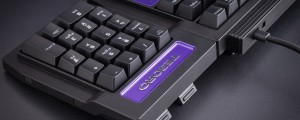The magic of overclocking
All along, we have been taking the pedestrian course and assuming you have plugged everything in and simply want it to work. However, what if you could get so much more and retain safe operating parameters for your hardware? That, my friends, is where overclocking comes in. There are many enterprising overclockers out there, I included, who run well over 500MHz for the FSB frequency, which is quite a bit more than the 333MHz Intel officially endorses. In addition to that, we use the excellent 1:1 divider to make sure our memory is also working at top speed. The result is bandwidth parity between the RAM and the FSB, meaning that the FSB is feeding the RAM as much information it is hungry for, rather than a weak FSB under-delivering to RAM which could take so much more.
Overclocking is all about manipulating values like we have talked about in this article: GTL Reference Voltage, DRAM frequency, FSB frequency and more. When buying the proper components with overclocking in mind, you will pay a paltry premium for a very large return. In the end, you will own a computer that’s far faster than anything you could buy off the shelf in its stock configuration. On top of maximizing your PC’s performance, operating within well-researched thresholds will not harm your computer as you may have heard before.
Wrap-up
As you can see, there are a great many variables tossed about in the world of Intel, many of which signify the same thing or are improperly advertised. We hope that you have learned how components in a Core 2 system operate together, and how you can maximize your purchase by acquiring the proper components. Stay tuned for part two where we orchestrate voltages and frequencies to maximize the overclock of your shiny Intel rig, and suggest components for the aspiring PC builder.






 Articles RSS
Articles RSS